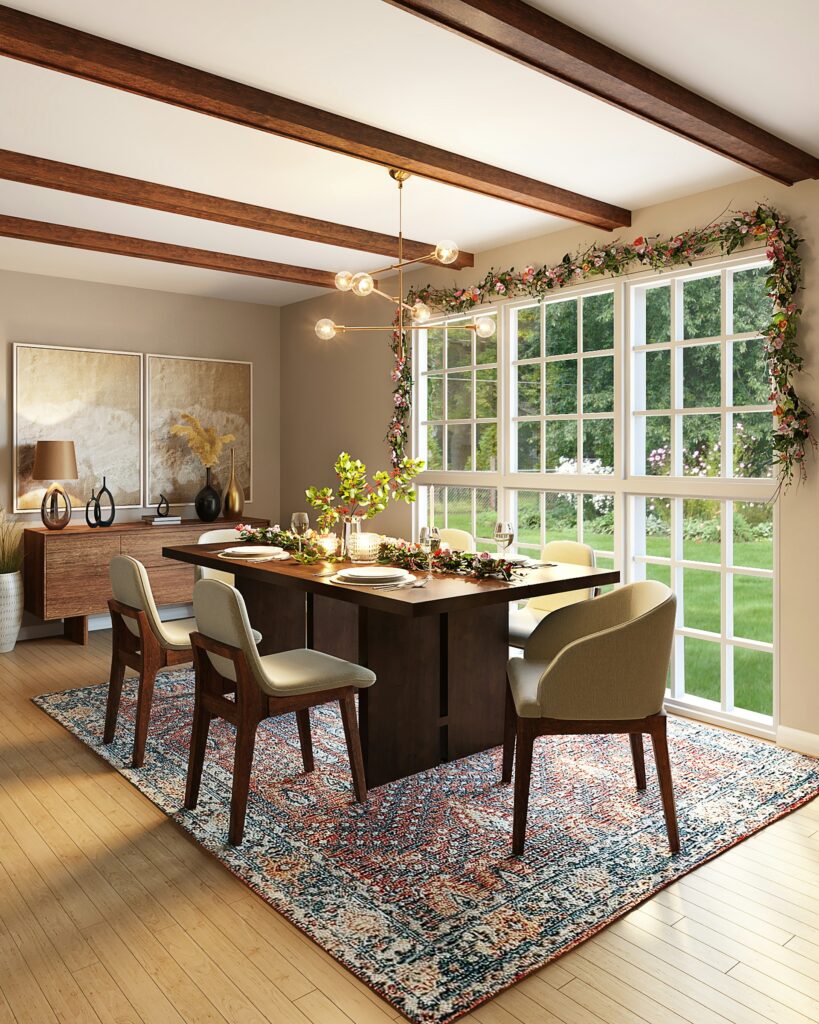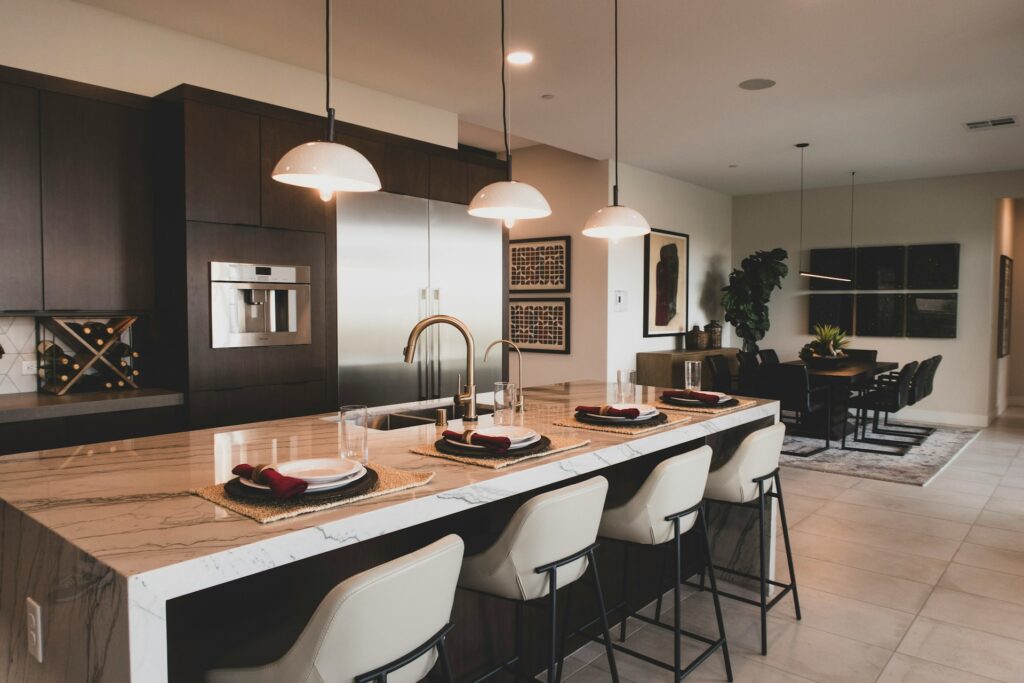Why Having a Dining Room in Your New Home is Essential
Your new home is your sanctuary, and it should cater to all your needs. One of the most significant decisions you will make during this process is how to design the different spaces in your home.
If you and your husband are debating whether or not to include a dining room in your new home, you’re not alone! This is a common discussion that many couples have.
But let me tell you—having a dedicated dining room can provide immense value to your lifestyle.

Is a Dining Room Even Necessary?
You bet it is! Having a dedicated dining area apart from your kitchen isn’t just a superficial luxury; it’s a practical and versatile space that can enhance your quality of life.
Let’s break down why you should definitely consider keeping that dining room:
Multifunctional Space
A dining room isn’t only for eating; it can serve multiple functions. Imagine hosting dinner parties, family gatherings, or even celebrating holidays.

The dining room becomes a central hub for social activities. It’s also an excellent space for working from home, for the kids to do their homework, or even to play board games.
When you entertain guests, having a designated space to gather and eat makes the entire experience more enjoyable and organized.
Think about Thanksgiving—cooking up a storm in the kitchen, then having a beautifully set dining table ready for a feast.
It creates a seamless flow and separates cooking mess from dining peace.
Architectural Balance
From an architectural standpoint, a home feels more balanced with distinct, purposeful rooms. Each space has its role, providing a sense of order and comfort.
A kitchen and dining room combo might seem efficient at first glance, but it can quickly become chaotic.
The kitchen is often bustling, messy, and noisy. By having a separate dining room, you maintain the serene environment of a shared meal without the background clatter of pots and pans.
Why Not Always Eat in the Kitchen?

Sure, kitchens have become more versatile and sometimes even luxurious spaces where families gather. But constantly eating in the kitchen has its drawbacks.
The Emotional Connection
The act of dining is more than just consuming food; it’s about creating connection and memories.
Eating in the kitchen can sometimes feel rushed and chaotic, while a dining room sets the stage for more mindful, intimate meals.
Think about candlelight dinners, long talks over dessert, and special family celebrations. These moments deserve a setting that complements their importance.
Practicality and Clean-Up
Kitchens are designed for preparing food, which can involve spills, splatters, and general messiness.
Do you want to be cleaning your kitchen multiple times a day just because it doubles as your dining area? A dining room separates these activities, allowing you to maintain cleanliness more easily.
Plus, it’s easier to keep a dining table set and ready for use than continually resetting a kitchen space.
How Do People Feel About Skipping the Dining Room?

Given the trend towards open floor plans in modern homes, some may argue that dining rooms are becoming obsolete.
However, the reality often speaks differently.
Resale Value
If you ever plan to sell your house, a dining room can significantly boost its appeal. Many potential buyers look for a formal dining space as part of a complete home setup. Skipping it might narrow your buyer pool, telling them the home isn’t fully accommodating for larger families or those who like to entertain.
What Compromises Can We Make?
So you’re not completely convinced and want to keep things flexible. Here’s how you can strike a balance:
Open Concept Dining Areas
You don’t necessarily need to have a completely separate room for dining. An open concept can still give you a designated dining space without feeling too enclosed. Use furniture, area rugs, or even half-walls to define the area clearly. This way, you achieve the best of both worlds—space efficiency and a designated dining area.
Convertible Spaces
If you’re constrained by space, consider multi-purpose furniture. A dining table that can double as a work desk or a foldable table that you can store when not in use can serve dual purposes without taking up much room.
Wrapping It Up
Ultimately, the decision is yours to make, but there is substantial merit in having a dedicated dining room. Its multifunctionality, the architectural balance it brings, and the separate, peaceful space it provides for dining and entertaining are invaluable.
Skipping the dining room might seem practical on the surface, but it’s important to consider the broader experience it contributes to daily life and special occasions. A dining room can be a sanctuary within your home, making meals more enjoyable and meaningful.
So, when you’re designing your future space, don’t rush past the decision to include a dining room—it’s a feature that can add both practicality and emotional richness to your home life.Run
